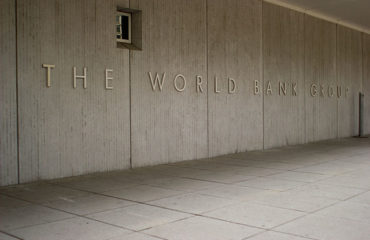Estimated reading time: 4 minutes

It is not just educational qualifications and professional experience that are important in IFC’s selections. The organization rigorously assesses candidates’ competencies at all times during the selection process.
Therefore, you should look to develop the competencies desired, since they will be evaluated and tested during the various IFC selection processes, and they have significant weight in the recruiters’ evaluation.
However, you may be asking yourself “what exactly is competence?”, and “can I develop them?”.
But what are the different competencies for a career at the IFC? In this article, we will explore the competencies required in detail.
This is just a small sample of our ebook “International Finance Corporation (IFC) Careers – eBook + 1 month support“. Get a copy today!
Check out our overview of IFC Job Opportunities:
Would you like to know the most essential tips to improve your IFC Careers CV? Then check out our magazine on the topic right now!
IFC Careers Competencies
A widespread understanding of “competence” which has guided the recruitment of people at intergovernmental organizations, such as the IFC, established competence as a set of four elements, known by the acronym KSAV: Knowledge, Skills, Attitudes and Values.
- Knowledge: Know-how. This refers to the set of theoretical and technical skills which an individual can consciously access in order to carry out certain activities. This knowledge may be learned through courses, specialization, training, and capacity-building, etc.
- Skills: Knowing how to do something. This is the practical and productive application of knowledge. It results from practice, making mistakes, training and application, etc.
- Attitudes: Wanting to do. Attitude means being able to employ knowledge and skills (called technical competencies) in order to achieve established goals. These are behavioral competencies that drive an individual to want to perform, overcome challenges, and innovate.
- Values: These are the fundamental principles that orientate how an individual behaves. These principles influence a person’s decision-making and professional results. For this reason, an organization seeks people who have values consistent with their own.
Want to know more? Check out our comprehensive eBook that will help you land a career at the IFC! It will introduce you to this complex organization and its approach towards international development; it will teach you how to prepare each of the documents required in detail, and it will also get you ready for the interview.
Upon acquiring the eBook you will also receive 30 days of support to clarify any queries.
Get it here:
To summarize, competence is understood as the knowledge, skills, attitudes and values which condition behaviors that have an influence on the efficient completion of tasks required for a specific position.
The majority of studies indicate that competencies can be developed. The idea of learning and/or developing competencies grew after concepts of competence, such as KSAV, were established, since these elements can be developed.
Therefore, learning competencies can be understood as the process through which an individual changes their behavior in specific situations by acquiring new knowledge.
Among the various forms of competency development are the following: reading; listening and observation; courses and training; practical experiences, and mentoring and coaching programs.
For educational purposes, in the table below you will find the most common competencies and skills required for IFC professionals, in order to prepare for the different selection processes in advance:
| Competencies/Skills |
|---|
| Analytical skills |
| Strong interpersonal skills |
| Communication and writing skills |
| Ability to hold technical discussions |
| Ability to write high-standard reports within tight deadlines |
| Ability to work as part of a team |
| Promote effective and cooperative relations with national authorities |
| Versatility |
| Innovation |
| Good work attitude |
| Handle sensitive issues with discretion in a multicultural environment |
Working for the International Finance Corporation (IFC) is a dream for many! Being an IFC’s Young Professional combines a wide range of benefits with meaningful work that can help to promote development around the world. Working for an international organization means developing a global career with a global reach, in a multicultural and pleasant environment; where you will be able to construct influential networks and receive encouragement to develop professionally.
In pursuit of its mission, the OpenIGO network has developed support and guidance services, with the aim of highly increasing your chances of success in this competitive selection process. These include an Application Review and a Mock Interview – based on the IFC YPP original model.
If you want to know more about it, access:
Also, check out our overview of IFC Job Opportunities:






